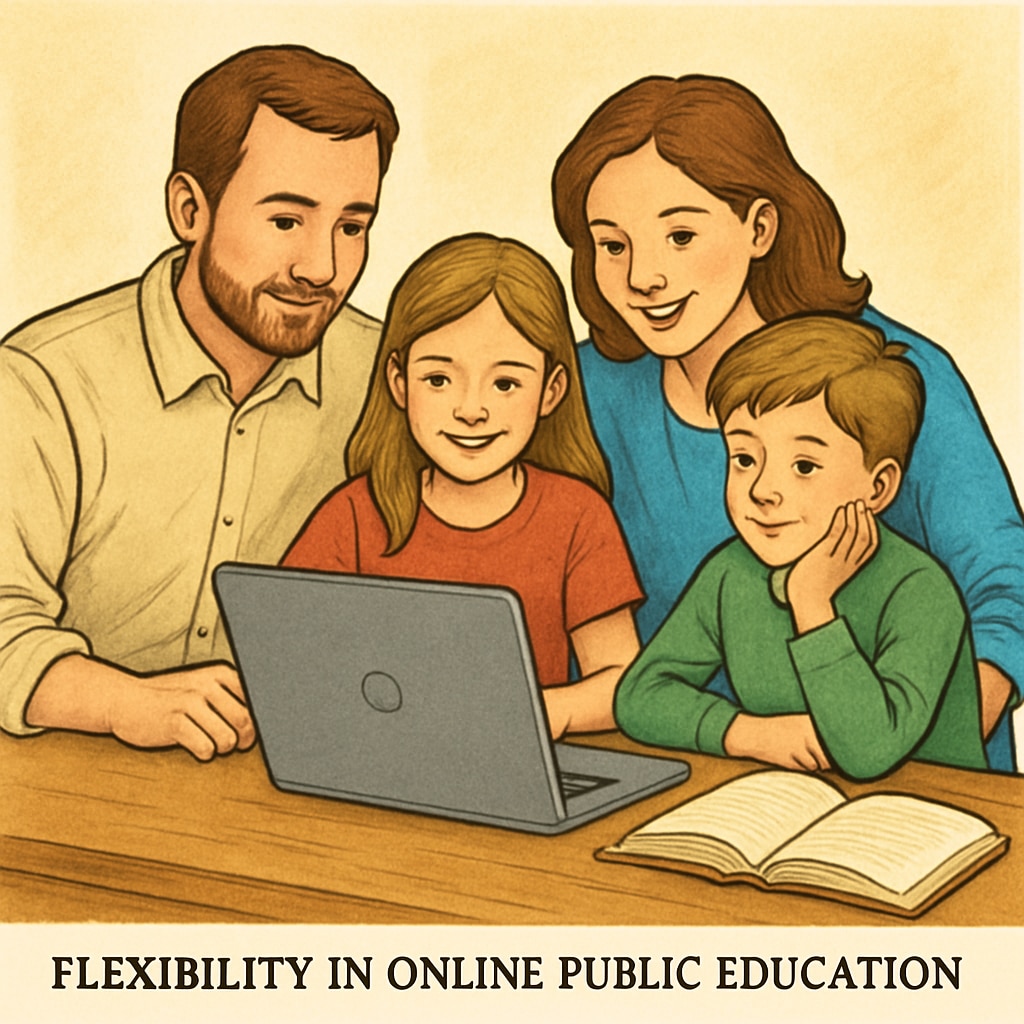In the evolving landscape of education, “online public education” has become a significant option for parents seeking flexibility and quality learning for their children. The combination of technology and public school systems provides families with the opportunity to balance life demands while ensuring academic success. But what drives these choices? This article delves into the motivations behind parents opting for this modern educational solution, from personalized learning needs to family-focused priorities.
Why Are Parents Considering Online Public Education?
Parents today are navigating a rapidly changing world where traditional education models often struggle to keep up with diverse family needs. Here are some key reasons they are turning to online public education:
- Flexibility: Online learning allows families to create a schedule that suits their unique lifestyles, whether balancing work commitments or travel plans.
- Individualized Learning: Many online public schools offer personalized curriculum options, enabling students to learn at their own pace and focus on their strengths.
- Access to Specialized Programs: These schools often provide resources tailored to gifted students or those needing additional support through special education services.
- Safety and Comfort: For some families, online education offers a safer and more comfortable learning environment, free from potential social pressures or bullying.

The Family-Work-Life Balance Factor
One of the most compelling reasons for choosing online public education is the ability to maintain a better work-life balance. For example, dual-income households or single parents often find it challenging to synchronize their professional obligations with their children’s academic schedules. Online education eliminates the need for daily commutes and allows parents greater involvement in their child’s learning process.
Additionally, families with frequent relocations—such as military families—benefit from the consistency that online public schools can provide. Students can maintain their education without disruption, regardless of geographic location.

Special Education and Tailored Support
Another pivotal advantage of online public education lies in its capacity to cater to children with unique educational needs. Special education programs can be customized to ensure that students receive the attention and resources they require. For children with learning disabilities, physical challenges, or behavioral concerns, online platforms often offer adaptive technologies and one-on-one support that traditional schools may find difficult to implement effectively.
According to Britannica, special education programs are designed to address the diverse requirements of students who may not thrive in conventional classroom settings. Online public schools utilize these principles, leveraging technology to bridge gaps in accessibility and learning outcomes.
Is Quality Sacrificed in Online Public Education?
Some critics argue that online public education may lack the same level of engagement or academic rigor as traditional schools. However, many institutions are now accredited and held to the same standards as in-person public schools. According to Wikipedia, online schools must meet state guidelines, ensuring students receive a high-quality education comparable to their brick-and-mortar counterparts.
Moreover, the integration of interactive learning tools, live video lessons, and group projects fosters a sense of community and collaboration among students, countering the perception of isolation often associated with remote education.
The Future of Education: A Hybrid Approach?
As online public education continues to grow, many experts predict a future where hybrid models—combining online and in-person learning—become the norm. This approach could offer the best of both worlds: the flexibility of remote education and the socialization opportunities of traditional schooling.
Parents, educators, and policymakers alike are recognizing the need for adaptable and inclusive education systems. By embracing online public education, families can play a proactive role in shaping their children’s academic journeys while addressing the realities of modern life.
In conclusion, the rise of online public education reflects a broader shift in how we perceive learning. For parents, the primary motivations—such as flexibility, individualization, and access to specialized resources—highlight the evolving priorities of today’s families. As this model continues to mature, it holds the potential to redefine education for generations to come.
Readability guidance: This article maintains a balance of short paragraphs, lists, and transitional phrases to ensure clarity and flow. Key points are presented in a structured manner, with real-world examples and authoritative sources to enhance credibility.


